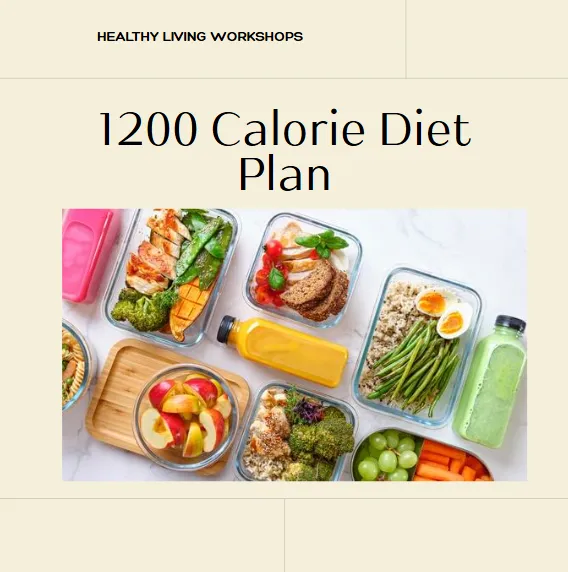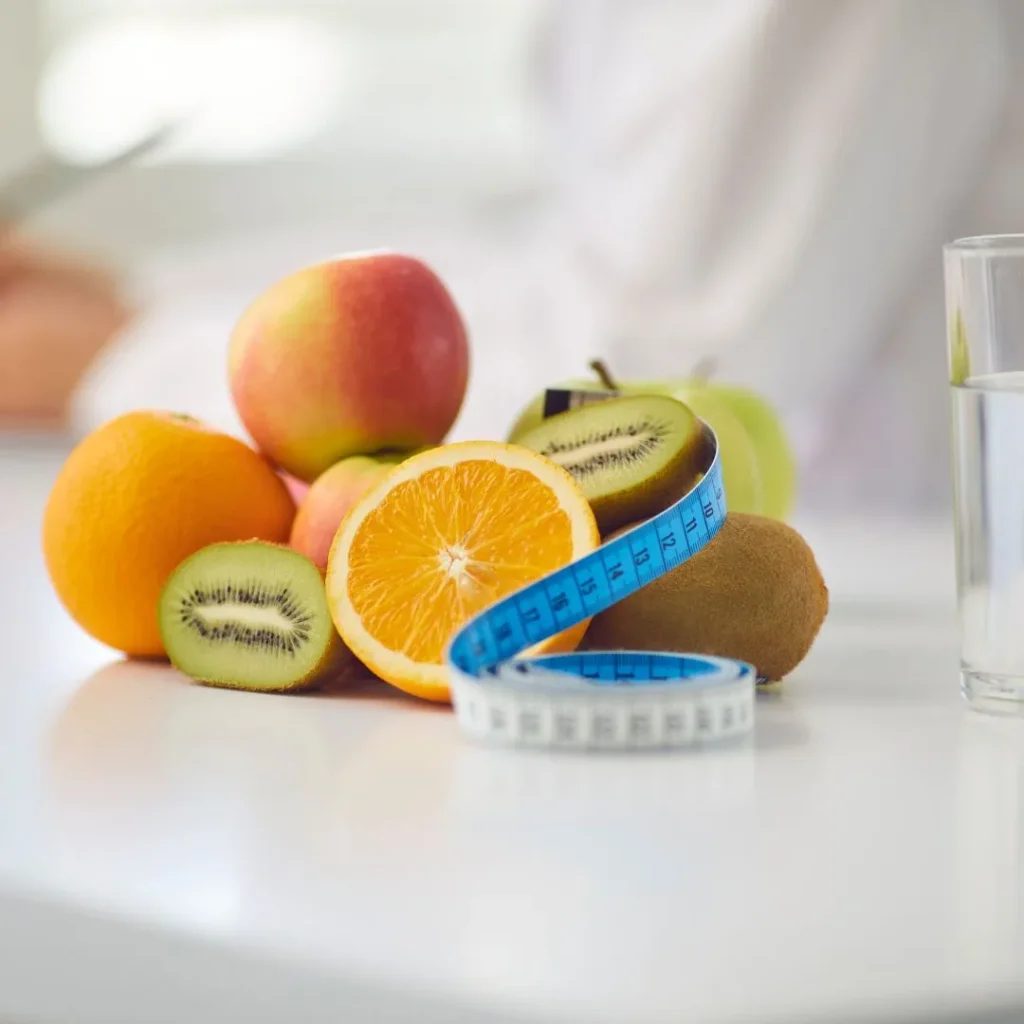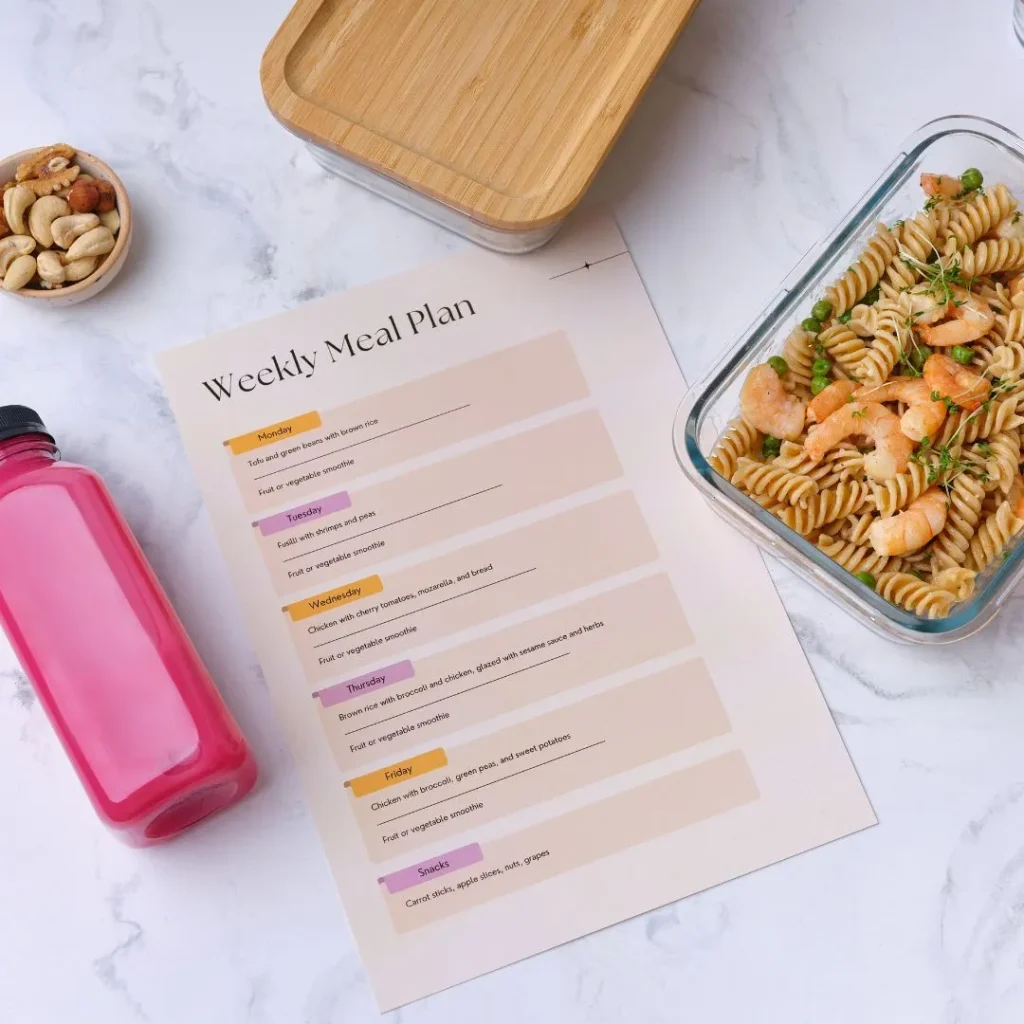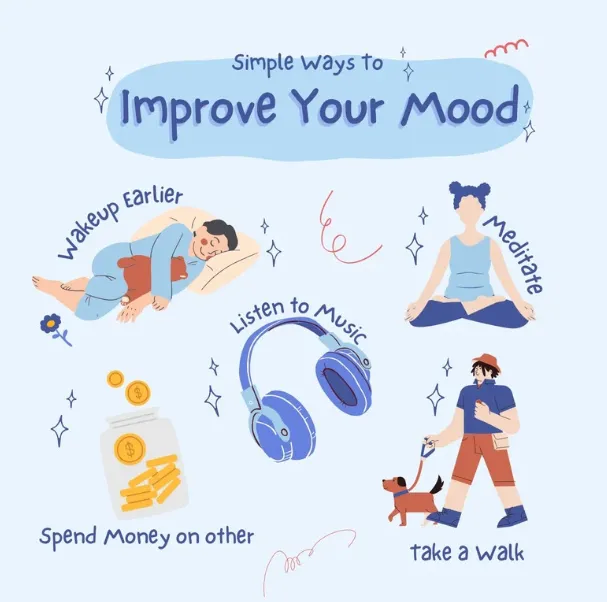1200 Calorie Diet Plan for Quick & Healthy Weight Loss
1200 Calorie Diet Plan for Quick & Healthy Weight Loss. A 1200-calorie diet is one of the most commonly prescribed low-calorie eating plans for weight loss. While it can be effective for certain individuals, it requires careful planning to ensure adequate nutrition while maintaining such a restricted calorie intake.
Understanding the 1200 Calorie Diet
A 1200-calorie diet is a structured eating plan that restricts daily caloric intake to approximately 1200 calories. This approach is typically designed for weight loss and is considered a low-calorie diet (LCD). While it can be effective for certain individuals, it’s important to understand both its potential benefits and significant limitations before beginning such a restrictive eating plan.
Who Is the 1200 Calorie Diet Appropriate For?
According to Cleveland Clinic and other medical authorities, a 1200-calorie diet may be appropriate for:
- Sedentary women who are small in stature and looking to lose weight
- Older adults with lower caloric needs due to decreased metabolism
- Individuals under medical supervision for specific health conditions
- Short-term use as recommended by healthcare professionals
Who Should Avoid the 1200 Calorie Diet
Medical News Today and registered dietitians emphasize that the following groups should avoid this restrictive approach:
(Jelly roll has reportedly lost 100 pounds hit an impressive milestone in his ongoing weight-loss journey, sharing that he’s lost 100 lbs. so far.)
- Men (who typically require 1500+ calories minimum)
- Active individuals or athletes
- People building muscle mass
- Pregnant or breastfeeding women
- Children and teenagers
- Anyone with a history of eating disorders
- Individuals who are already underweight
- People with certain medical conditions without proper supervision
Potential Benefits of the 1200 Calorie Diet

Rapid Initial Weight Loss
The primary benefit of a 1200-calorie diet is rapid weight loss. By creating a significant caloric deficit, most people will lose weight quickly, which can provide motivation to continue healthy habits.
Structured Approach
The strict calorie limit can help some individuals develop portion control awareness and mindful eating habits that may benefit them long-term.
Medical Applications
1200 Calorie Diet Plan for Quick & Healthy Weight Loss. Under proper medical supervision, very low-calorie diets can be beneficial for individuals with obesity preparing for surgery or managing certain health conditions.
Significant Risks and Drawbacks
Nutritional Deficiencies
At only 1200 calories, it becomes extremely challenging to meet all nutritional needs. According to Healthline, this can lead to deficiencies in essential vitamins, minerals, and macronutrients.
Metabolic Adaptation
Severely restricting calories can cause your metabolism to slow down as your body attempts to conserve energy, making further weight loss more difficult.
Potential Side Effects
Common side effects include:
- Fatigue and low energy
- Dizziness and weakness
- Extreme hunger
- Difficulty concentrating
- Mood changes and irritability
- Hair loss
- Constipation
- Menstrual irregularities in women

Muscle Loss
Without adequate protein and calories, the body may break down muscle tissue for energy, leading to decreased lean body mass.
Turning to a meal plan that’s been mapped out by nutritionists is an easy way to jumpstart healthier eating habits. And that doesn’t necessarily mean these habits about to be about losing weight. “A structured plan like this can help you practice and understand the building blocks that make up a balanced diet. Then, you can change things up to suit your preferences and needs, as well as incorporate more of the nourishing foods your body wants to fully customize the plan for you,” says Stefani Sassos, M.S., R.D., C.D.N, deputy nutrition director for the Good Housekeeping Institute.
Dates: The Ultimate Energy Boosting Snack. From trail mix to pastry centerpieces, dried dates have been a staple ingredient for thousands of years. Believed by some historians to be the oldest cultivated fruit, dates played an important role in several ancient empires and religions.
While 1,200 calories may be the right amount for some people, it can be restrictive for many, so always consult with your doctor before deciding to follow a certain eating style, says Sassos. Depending on your daily activity level, we also suggest checking out our 1,300-, 1,400-, 1,500- and 1,800-calorie meal plans as well.
These menus are all roughly 1,200 calories, give or take a few, but it’s important to note that this plan is designed to be built upon and added to by increasing your servings of veggies at any opportunity and adding more fruits at snack time. You can also add on 1–5 ounces of protein at all meals if at any point you’re feeling like it’s just not enough food to keep you satisfied. The combo of fiber from produce and lean protein makes this an adaptable strategy that’ll help you lose weight safely — if that is a goal of yours. Scroll down for a week’s worth of simple breakfast, lunch and dinner options that won’t have you feeling deprived.
Food Items To Limit
- Avoid candy, soda, sugar, white rice, white pasta, white bread, sweet syrup, breakfast cereal, desserts, and pastries contain simple carbohydrates.
- Avoid margarine, butter, eggs, milk, cheese, and red meat are high in saturated fat.
- Avoid eating red meat as it contains high levels of saturated fat that shoot up the cholesterol levels in the blood.
- Avoid eating fried foods such as fried chicken, deep fried foods, and potato fries.
- Avoid alcohol
- Avoid aerated and artificially sweetened drinks.
Do’s And Dont’s
Do’s:
- Eat Healthy Fat to Lose Weight
- Eat 2-3 hours before going to sleep
- Make Healthy Swaps
- Follow Smart Tips for Dining Out
Don’ts:
- Don’t starve yourself
- Dont dehydrate yourself
- Dont eat if your are not hungry
- Dont eat too much saturated fat
7-Day 1200 Calorie Meal Plan
Important Note: This meal plan is for educational purposes only. Consult with a healthcare provider or registered dietitian before starting any restrictive diet.

Day 1
Breakfast (300 calories)
- 1 cup plain Greek yogurt (130 cal)
- 1/2 cup fresh berries (40 cal)
- 1 tablespoon honey (60 cal)
- 1 tablespoon chopped almonds (70 cal)
Lunch (350 calories)
- Large salad with 2 cups mixed greens (20 cal)
- 3 oz grilled chicken breast (140 cal)
- 1/4 avocado (60 cal)
- 1 tablespoon olive oil vinaigrette (120 cal)
- 1/2 cup cherry tomatoes (10 cal)
Dinner (400 calories)
- 4 oz baked salmon (200 cal)
- 1 cup steamed broccoli (55 cal)
- 1/2 cup brown rice (110 cal)
- 1 teaspoon olive oil (35 cal)
Snack (150 calories)
- 1 medium apple (80 cal)
- 1 tablespoon almond butter (95 cal)
Day 2
Breakfast (280 calories)
- 2 large eggs, scrambled (140 cal)
- 1 cup spinach, sautéed (10 cal)
- 1 slice whole grain toast (80 cal)
- 1 teaspoon olive oil for cooking (40 cal)
- 1/2 medium banana (50 cal)
Lunch (380 calories)
- Tuna salad: 3 oz canned tuna in water (100 cal)
- 1 tablespoon light mayo (50 cal)
- 2 cups mixed greens (20 cal)
- 1/2 cup cucumber slices (8 cal)
- 1 medium whole grain pita (140 cal)
- 1 cup cherry tomatoes (30 cal)
- 1 tablespoon balsamic vinegar (10 cal)
Dinner (390 calories)
- 4 oz lean ground turkey, cooked (120 cal)
- 1 cup zucchini noodles (20 cal)
- 1/2 cup marinara sauce (35 cal)
- 1 tablespoon parmesan cheese (20 cal)
- Mixed vegetables: bell peppers, onions (30 cal)
- 1 tablespoon olive oil (120 cal)
- Side salad with 1 cup greens (10 cal)
- 1 tablespoon light dressing (35 cal)
Snack (150 calories)
- 1 cup berries (80 cal)
- 1/4 cup low-fat cottage cheese (70 cal)
Day 3
Breakfast (290 calories)
- 1/2 cup oatmeal, dry (150 cal)
- 1/2 cup skim milk (40 cal)
- 1/2 cup blueberries (40 cal)
- 1 teaspoon honey (20 cal)
- 1 tablespoon chopped walnuts (40 cal)
Lunch (360 calories)
- Vegetable soup: 1.5 cups (100 cal)
- 2 oz grilled chicken breast (90 cal)
- 1 small whole grain roll (80 cal)
- 1 cup mixed greens (10 cal)
- 1 tablespoon olive oil and vinegar dressing (80 cal)
Dinner (400 calories)
- 4 oz white fish (cod or tilapia) (120 cal)
- 1 medium baked sweet potato (100 cal)
- 1 cup green beans (35 cal)
- 1 tablespoon olive oil (120 cal)
- Herbs and spices for seasoning (5 cal)
- 1/2 cup steamed cauliflower (20 cal)
Snack (150 calories)
- 1 medium pear (100 cal)
- 10 almonds (50 cal)
Day 4
Breakfast (300 calories)
- Smoothie: 1 cup spinach (7 cal)
- 1/2 banana (50 cal)
- 1/2 cup frozen berries (40 cal)
- 1 tablespoon almond butter (95 cal)
- 1 cup unsweetened almond milk (30 cal)
- 1 tablespoon chia seeds (78 cal)
Lunch (350 calories)
- Quinoa bowl: 1/2 cup cooked quinoa (110 cal)
- 2 oz grilled tofu (90 cal)
- 1/2 cup roasted vegetables (50 cal)
- 1/4 avocado (60 cal)
- 1 tablespoon tahini dressing (40 cal)
Dinner (400 calories)
- 3 oz lean beef sirloin (150 cal)
- 1 cup roasted Brussels sprouts (40 cal)
- 1/2 cup mashed cauliflower (25 cal)
- 1 tablespoon olive oil (120 cal)
- Large mixed salad (20 cal)
- 1 tablespoon balsamic vinegar (10 cal)
- 1/2 cup roasted beets (35 cal)
Snack (150 calories)
- 1 cup plain Greek yogurt, low-fat (100 cal)
- 1 tablespoon honey (50 cal)
Day 5
Breakfast (285 calories)
- 2 egg whites + 1 whole egg omelet (105 cal)
- 1/2 cup mushrooms and bell peppers (15 cal)
- 1 slice whole grain toast (80 cal)
- 1/4 avocado (60 cal)
- 1 cup strawberries (50 cal)
Lunch (365 calories)
- Turkey wrap: 2 oz sliced turkey (60 cal)
- 1 large whole wheat tortilla (130 cal)
- 1 tablespoon hummus (25 cal)
- Lettuce, tomato, cucumber (20 cal)
- 1 cup vegetable soup (50 cal)
- 1 medium orange (80 cal)
Dinner (400 calories)
- 4 oz baked chicken thigh, skinless (140 cal)
- 1 cup roasted root vegetables (80 cal)
- 1/2 cup wild rice (85 cal)
- 1 tablespoon olive oil (120 cal)
- 1 cup steamed asparagus (25 cal)
Snack (150 calories)
- 1/4 cup hummus (100 cal)
- 1 cup cucumber and bell pepper slices (20 cal)
- 5 olives (30 cal)
Day 6
Breakfast (295 calories)
- 1 cup plain low-fat Greek yogurt (130 cal)
- 1 tablespoon granola (50 cal)
- 1/2 cup mixed berries (40 cal)
- 1 tablespoon chopped pecans (75 cal)
Lunch (355 calories)
- Lentil salad: 1/2 cup cooked lentils (115 cal)
- 2 cups mixed greens (20 cal)
- 1/2 cup cherry tomatoes (15 cal)
- 1/4 cup cucumber (4 cal)
- 1 tablespoon olive oil (120 cal)
- 1 tablespoon lemon juice (4 cal)
- 1 small whole grain dinner roll (77 cal)
Dinner (400 calories)
- 4 oz grilled shrimp (110 cal)
- 1 cup zucchini and yellow squash, grilled (25 cal)
- 1/2 cup quinoa (110 cal)
- 1 tablespoon olive oil (120 cal)
- 1 cup mixed green salad (10 cal)
- 1 tablespoon balsamic vinegar (10 cal)
- 1/2 cup roasted red peppers (15 cal)
Snack (150 calories)
- 1 medium apple (80 cal)
- 1 tablespoon natural peanut butter (95 cal)
Day 7
Breakfast (300 calories)
- 1/2 cup cottage cheese, low-fat (90 cal)
- 1 slice whole grain toast (80 cal)
- 1 cup fresh strawberries (50 cal)
- 1 tablespoon almond butter (95 cal)
Lunch (350 calories)
- Chicken salad: 3 oz grilled chicken breast (140 cal)
- 2 cups spinach and arugula (20 cal)
- 1/2 cup chickpeas (135 cal)
- 1 tablespoon olive oil vinaigrette (120 cal)
- 1/2 cup shredded carrots (25 cal)
- 1/4 cup red onion (10 cal)
Dinner (400 calories)
- 4 oz baked cod (120 cal)
- 1 medium baked potato (160 cal)
- 1 cup steamed broccoli (55 cal)
- 1 tablespoon olive oil (120 cal)
- Herbs and lemon for seasoning (5 cal)
Snack (150 calories)
- 1/4 cup mixed nuts (170 cal) – Note: Adjust portion to 150 calories
- 1 cup herbal tea (0 cal)
Essential Nutritional Strategies for a 1200 Calorie Diet
Maximizing Nutrient Density
When calories are severely limited, every calorie must count nutritionally. Focus on:
High-Quality Proteins
- Lean meats, fish, eggs
- Greek yogurt and cottage cheese
- Legumes and tofu
- Aim for 25-30% of calories from protein
Fiber-Rich Carbohydrates
- Vegetables (unlimited non-starchy varieties)
- Fruits (2-3 servings daily)
- Whole grains (limited portions)
- Legumes
Healthy Fats
- Olive oil, avocados, nuts, seeds
- Fatty fish for omega-3 fatty acids
- Limit to 25-30% of total calories
Meal Timing and Distribution
- Eat regular meals to maintain stable blood sugar
- Include protein at each meal to preserve muscle mass
- Don’t skip meals as this can lead to overeating later
- Consider smaller, more frequent meals if hunger is an issue
Hydration and Volume
- Drink at least 8-10 glasses of water daily
- Include water-rich foods like vegetables and fruits
- Use herbs and spices to add flavor without calories
- Consider herbal teas and black coffee (without added sugars)
Monitoring Your Health on a 1200 Calorie Diet
Warning Signs to Watch For
Discontinue the diet and consult a healthcare provider if you experience:
- Persistent fatigue or weakness
- Dizziness or fainting
- Hair loss
- Mood changes or depression
- Difficulty concentrating
- Irregular menstrual periods
- Constant preoccupation with food
Regular Health Monitoring
If pursuing this diet under medical supervision, regular monitoring should include:
- Weight and body composition tracking
- Blood pressure measurements
- Blood tests for nutrient deficiencies
- Metabolic rate assessments
- Mental health evaluations
Alternatives to Consider
Modified Approaches
Instead of a strict 1200-calorie diet, consider:
1400-1500 Calorie Plans: Often more sustainable while still promoting weight loss
Intermittent Fasting: May provide similar benefits with less restriction
Mediterranean Diet: Focuses on nutrient-dense foods with proven health benefits
DASH Diet: Emphasizes whole foods and has been shown to support weight loss
Professional Guidance Options
- Registered Dietitian: For personalized meal planning
- Endocrinologist: For metabolic and hormonal evaluation
- Primary Care Physician: For overall health monitoring
- Mental Health Professional: For eating disorder screening and support
Making the Diet More Sustainable
Practical Tips
- Meal Prep: Prepare portions in advance to avoid impulsive food choices
- Nutrient Timing: Eat your largest meal when most active
- Supplement Wisely: Consider a high-quality multivitamin
- Stay Active: Include light exercise to maintain muscle mass
- Plan Treats: Allow for small, planned indulgences to prevent binging
Transition Strategies
If you decide to try a 1200-calorie diet:
- Start Gradually: Reduce calories slowly over 1-2 weeks
- Set Time Limits: Plan for a specific duration (4-8 weeks maximum)
- Plan Your Exit: Have a strategy for gradually increasing calories
- Monitor Closely: Track both physical and mental health changes
- Have Support: Involve healthcare providers and support systems
Long-Term Considerations
Metabolic Recovery
After following a very low-calorie diet, your metabolism may need time to recover. Plan for:
- Gradual calorie increases
- Continued focus on nutrient-dense foods
- Regular exercise to rebuild metabolic rate
- Patience with weight fluctuations
Sustainable Habits
The most valuable aspect of any diet should be the healthy habits it teaches:
- Portion awareness
- Nutrient-dense food choices
- Regular meal timing
- Mindful eating practices
( How long does shrooms stay in your system. Psychedelic mushrooms are not known to cause significant physical dependence, so classic withdrawal symptoms are rare. However, understanding how long mushrooms stay in your system is essential for drug testing and overall health and mental well-being.
( PCOS and Bloating. Polycystic Ovary Syndrome (PCOS) affects millions of women worldwide, bringing with it a complex array of symptoms that extend far beyond reproductive health. Among the most frustrating and uncomfortable symptoms many women experience is chronic bloating, which can significantly impact daily life and overall well-being. Understanding the connection between PCOS and digestive issues—and knowing effective home remedies to address them—can provide much-needed relief and improved quality of life. )




